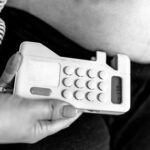When do you start getting pregnancy symptoms? Understanding the early signs of pregnancy is crucial for women who are trying to conceive or may have concerns about their reproductive health. From physical symptoms such as fatigue and nausea to emotional changes like mood swings, recognizing the onset of pregnancy symptoms can play a vital role in seeking medical care and support.
This article aims to explore the various signs and symptoms associated with early pregnancy, along with the timing and individual variations in experiencing these changes. Additionally, it will highlight the importance of recognizing pregnancy symptoms early on for the overall well-being of expectant mothers.
Pregnancy brings about a multitude of physical and emotional changes for women. Understanding these changes is essential for those planning to conceive or those who suspect they may be pregnant. Early signs such as fatigue, morning sickness, tender breasts, and mood swings can provide valuable insight into a potential pregnancy before a test confirms it. By understanding these symptoms, women can make informed decisions regarding their reproductive health.
In addition to discussing the common physical and emotional symptoms associated with early pregnancy, this article will delve into when these symptoms typically start to manifest. It will also consider individual variations that may affect the onset of these symptoms, allowing readers to gain a comprehensive understanding of what to expect during the early stages of pregnancy. Furthermore, the article will emphasize the necessity of confirming pregnancy through appropriate testing methods and seeking medical guidance when experiencing these symptoms.
Understanding the Early Signs of Pregnancy
When it comes to understanding the early signs of pregnancy, it’s important for individuals to familiarize themselves with the various physical and emotional symptoms that may indicate the beginning of a pregnancy. It’s important to recognize that every woman’s experience with pregnancy symptoms can be different, but general knowledge about these signs can help individuals identify when they may need to take a pregnancy test.
Physical symptoms such as fatigue, nausea, and tender breasts are among the most common indicators of early pregnancy. Many women experience extreme fatigue in the early stages of pregnancy due to hormonal changes and an increase in progesterone levels. Nausea, often referred to as morning sickness, is another physical symptom that many women experience in the early weeks of pregnancy. Additionally, some women may notice tenderness or swelling in their breasts as a result of hormonal changes.
In addition to physical symptoms, emotional symptoms such as mood swings and irritability are also common indicators of early pregnancy. Hormonal changes can have a significant impact on a woman’s mood and emotional wellbeing during the early stages of pregnancy. It’s important for individuals to recognize these emotional fluctuations as potential signs of pregnancy, especially when accompanied by other physical symptoms.
Physical Symptoms
During the early stages of pregnancy, many women experience physical symptoms that may indicate they are expecting. These physical signs can vary from woman to woman, but some of the most common ones include fatigue, nausea, and tender breasts. Here is a breakdown of these physical symptoms:
- Fatigue: Feeling more tired than usual is a common early sign of pregnancy. This can be attributed to the changes in hormone levels and the increased demands on the body as it begins to support the growing fetus.
- Nausea: Often referred to as morning sickness, nausea can actually occur at any time of the day for pregnant women. Some women may only experience mild queasiness while others may have more severe episodes of vomiting.
- Tender Breasts: Hormonal changes during pregnancy can cause the breasts to become tender or swollen. This is often one of the first physical indicators that a woman may be pregnant.
It’s important to note that not all women will experience these symptoms or might have them at different times during their pregnancies. In fact, some women may not notice any physical changes until several weeks into their pregnancies. However, being aware of these potential signs can help women recognize when they might be pregnant and seek confirmation through a medical professional.
Some tips for managing these symptoms include getting enough rest, eating small and frequent meals to help with nausea, and wearing a supportive bra to alleviate breast tenderness or discomfort.
Whether you are planning for a pregnancy or suspect you might be expecting, being mindful of these physical signs can provide valuable insight into your reproductive health. If you suspect you might be pregnant due to experiencing any of these symptoms, it’s recommended to take a home pregnancy test or seek guidance from a healthcare provider.
Emotional Symptoms
During pregnancy, the body undergoes significant hormonal changes that can lead to a variety of emotional symptoms, including mood swings and irritability. These emotional symptoms are quite common and can be challenging to manage for many expectant mothers. It is important to understand these emotional changes and how to cope with them effectively.
Some of the common emotional symptoms experienced during pregnancy include:
- Mood Swings: Many women experience sudden shifts in their mood during pregnancy. One moment they may feel elated and happy, and the next they may feel down and tearful. These mood swings are often triggered by hormonal changes, fatigue, and stress.
- Irritability: Pregnant women may find themselves becoming easily irritated or frustrated over minor issues. This can be exacerbated by physical discomforts, such as nausea and fatigue, as well as the anxiety of preparing for a new baby.
It is important for expectant mothers to recognize that these emotional symptoms are a normal part of pregnancy and do not indicate any personal weakness or inadequacy. It is also crucial for partners and family members to provide support and understanding during this time.
While it is difficult to pinpoint an exact timeframe for when these emotional symptoms will start manifesting, they typically become noticeable within the first trimester. However, individual variations play a significant role in determining when these symptoms will appear. Factors such as overall health, stress levels, and hormonal differences can influence the onset of emotional symptoms in pregnancy.
In some cases, women may experience emotional symptoms even before they realize they are pregnant. It is essential for expectant mothers to listen to their bodies and seek support from healthcare professionals if they are struggling with intense or prolonged emotional challenges during pregnancy.
Timing
First Trimester: Early Signs and Symptoms
During the first trimester of pregnancy, many women experience a variety of symptoms that can indicate the presence of a baby on the way. These signs can start showing as early as one week after conception and typically become more pronounced around the 5-6 week mark. It’s important to note that every woman’s experience is unique, so not everyone will have the same onset or severity of symptoms.
Common Early Symptoms
Some common early pregnancy symptoms include fatigue, nausea, and tender breasts. Fatigue can be overwhelming for some women, leaving them feeling exhausted even after a full night’s sleep. Nausea, often referred to as morning sickness, can occur at any time of day and may cause vomiting in severe cases. Additionally, hormonal changes can cause the breast tissue to become sensitive and tender to the touch.
When to Seek Medical Advice
If you suspect that you may be pregnant based on these symptoms, it is advisable to seek medical advice from a healthcare professional. They can provide guidance on next steps and may recommend taking a pregnancy test for confirmation. Keep in mind that while these symptoms are typical of early pregnancy, they are not definitive proof of conception.
Understanding when pregnancy symptoms typically start can help individuals recognize the initial signs of pregnancy and take appropriate steps towards confirming their condition. By being aware of these early indicators, individuals can seek proper prenatal care and make necessary lifestyle adjustments for a healthy pregnancy journey.
Individual Variations
When it comes to pregnancy symptoms, every woman’s experience can vary widely. There are several factors that can affect when and how strongly pregnancy symptoms start to appear. One significant factor is individual hormone levels – some women may start experiencing symptoms very early on due to higher levels of pregnancy hormones, while others may not experience any noticeable symptoms until later in their pregnancy.
Another factor that can influence the onset of pregnancy symptoms is a woman’s overall health and lifestyle. Women who are generally healthy and active may notice physical symptoms like fatigue and nausea more acutely, while those with pre-existing health conditions may have a different experience. Additionally, stress levels and emotional well-being can also impact when and how intensely pregnancy symptoms manifest.
Age can also play a role in when pregnancy symptoms start to become apparent. Younger women may notice symptoms sooner due to their bodies being more sensitive to hormonal changes, while older women might take longer to recognize these signs.
| Factor | Influence on Pregnancy Symptoms |
|---|---|
| Hormone Levels | Determines how early or late symptoms appear |
| Overall Health and Lifestyle | Affects the intensity of physical symptoms experienced |
| Age | Impacts sensitivity to hormonal changes and the timing of symptom onset |
Confirmation
When it comes to confirming whether you are pregnant or not, taking a pregnancy test is the most accurate method. It is important to understand when and how to take a pregnancy test in order to get reliable results.
Understanding Pregnancy Tests
Pregnancy tests work by detecting the presence of a hormone called human chorionic gonadotropin (hCG) in your urine. This hormone is produced by the placenta shortly after a fertilized egg attaches to the uterine lining. Most home pregnancy tests are designed to be used on the first day of your missed period or after.
There are different types of tests available, such as strip tests, digital tests, and early detection tests. It’s important to follow the instructions carefully to ensure accurate results.
When to Take a Pregnancy Test
While some tests claim they can detect pregnancy before your missed period, it is generally recommended to wait until after you have missed your period for the most accurate results. Testing too early may result in a false negative, as there may not be enough hCG in your system yet for the test to detect.
If you suspect you may be pregnant but receive a negative result, consider waiting a few days and testing again if your period still does not arrive.
Seeking Professional Confirmation
If you receive a positive result on a home pregnancy test, it is still advisable to seek confirmation from a healthcare professional. They can perform a blood test which will detect hCG at much lower levels than urine tests, providing further confirmation of pregnancy. Professional guidance and support are essential when dealing with such an important life event, so do not hesitate to consult with your doctor when in doubt about your pregnancy status.
Conclusion
In conclusion, understanding the early signs of pregnancy is crucial for women who are trying to conceive or who may suspect they are pregnant. Recognizing these symptoms can help individuals make informed decisions about their healthcare and lifestyle choices. By being aware of the physical and emotional changes that may occur during early pregnancy, women can seek appropriate medical care and support, as well as make necessary adjustments to their daily routines.
It is important to note that pregnancy symptoms can vary widely from person to person. While some individuals may experience symptoms as early as a week after conception, others may not notice any changes for several weeks. Factors such as individual health, stress levels, and hormone fluctuations can all impact when pregnancy symptoms start to become noticeable.
For those wondering “when do you start getting pregnancy symptoms,” it is recommended to pay close attention to any unusual changes in your body and be proactive about seeking medical advice if you suspect you may be pregnant. Taking a pregnancy test is the most definitive way to confirm a pregnancy, but recognizing the early signs of conception can give individuals a head start in preparing for the journey ahead.
Whether experiencing fatigue, nausea, tender breasts, mood swings, or irritability, knowing what to look out for can be empowering for those hoping to start a family.
Frequently Asked Questions
How Soon Can You Get Symptoms of Pregnancy?
Symptoms of pregnancy can start as early as one to two weeks after conception. These symptoms can include missed periods, fatigue, tender or swollen breasts, nausea, and frequent urination.
What Are Symptoms of Pregnancy at 1 Week?
At one week pregnant, a woman may not notice any physical symptoms yet since it is very early in the pregnancy. However, some women may experience light spotting or cramping due to the fertilized egg attaching to the uterus.
How Soon Can You Know if You Are Pregnant?
Nowadays, home pregnancy tests are quite accurate and can detect pregnancy as early as a few days before a missed period. Blood tests at a doctor’s office can also provide confirmation of pregnancy within a week of conception.

Welcome to my fertility blog. This is a space where I will be sharing my experiences as I navigate through the world of fertility treatments, as well as provide information and resources about fertility and pregnancy.





